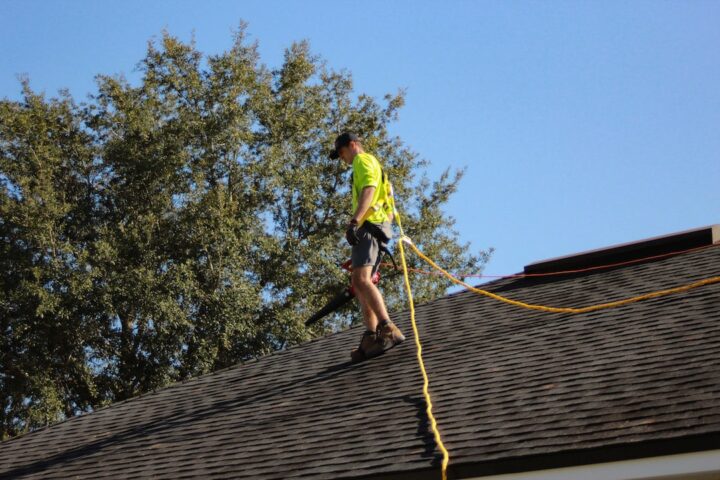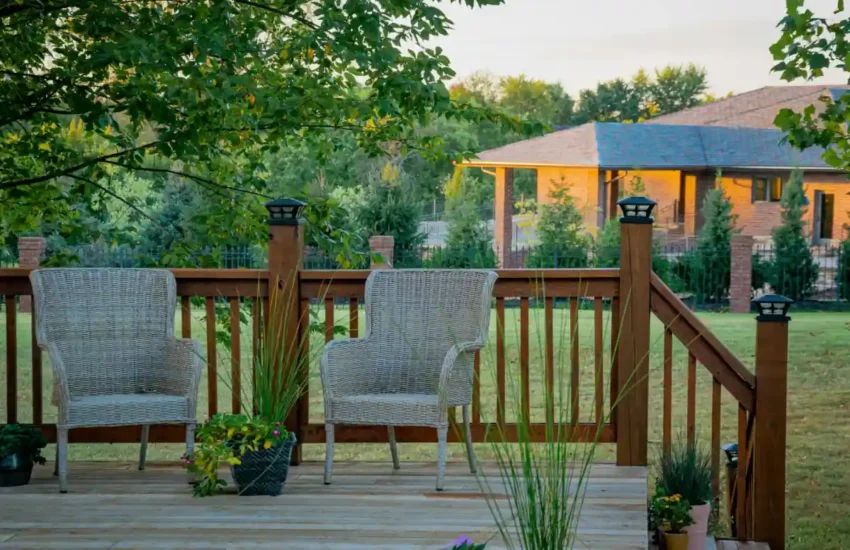Replacing or Fixing Your Roof? These 6 Tips Can Help You
If the top of your house is showing signs of aging, or worse, damage, it might be time to consider fixing or replacing your roof. This is not a decision to take lightly, nor a project to take on without proper knowledge and preparation. The roof is, after all, what stands between you and the elements.
In this guide, we’re going to demystify the process by offering 6 invaluable tips to help you navigate your way around the often complex world of roofing. These pointers will help you make an informed decision, find the right contractor and materials, and ensure that your roof is fixed or replaced correctly — let’s dive in!

Choose a Reputable Contractor
While the materials used in the installation are important, the quality of the workmanship can have an even greater impact on the overall longevity and performance of your roof. Reliable contractors like those at PemiereRoofingNC.com have the experience, knowledge, and skills to properly assess your roof and determine whether it can be repaired or if a full replacement is needed. Ask for recommendations from friends and family, read online reviews, and request quotes from multiple contractors before taking the plunge.
Look for the Best Material
Selecting the right material is just as crucial as hiring a reputable contractor for your roofing project. Various options, such as asphalt shingles, metal, clay tiles, and wood shakes, each have their unique advantages and lifespan.
Asphalt shingles, for example, are a popular choice due to their affordability and ease of installation. On the other hand, metal roofs, while more expensive, offer excellent durability and lifespan. You should weigh the pros and cons of each material against your budget and the specific needs of your home. The goal is to choose a roofing material that provides the best value for your money in terms of longevity, performance, and durability.
Get Estimates
Before committing to a specific contractor, take the time to get estimates from several potential service providers. Ask for a detailed breakdown of the costs, including labor, materials, and any additional charges or fees. Be wary of bids that seem too good to be true as they could indicate subpar workmanship or the use of inferior materials.
Consider comparing quotes from contractors with different levels of experience and expertise to get a better understanding of the market rate for your roofing project. Don’t hesitate to negotiate where possible, and remember, the cheapest quote doesn’t necessarily mean the best value.
Ask About Warranties
Warranties can act as your safety net in case your new roof develops issues within a specified period post-installation. Many prominent contractors offer both manufacturer’s warranties (which cover the roofing materials) and workmanship warranties (which cover the labor).
A manufacturer’s warranty may be void if the roof is installed incorrectly, hence the importance of a workmanship warranty. Ensure that you fully understand the terms and conditions of the warranty, including its duration, what’s covered, and the steps required to make a claim. A good warranty can provide peace of mind and save you from unexpected repair costs down the line.
Plan for the Unexpected
Like most home renovations, roofing projects often come with unexpected challenges. These can include hidden damage, inclement weather, or material delays. It’s essential to budget for these potential issues by setting aside a contingency fund of at least 10-20% of the total cost.
Unfortunately, roofing projects can also attract unscrupulous individuals who may try to take advantage of homeowners. Be wary of any contractor who asks for a large upfront payment or offers overly discounted prices — these are often red flags that could lead to poor quality work or incomplete projects.
Check Local Building Codes
Building codes are legal requirements set by your local authority that dictate the standards for construction. They’re designed to ensure the safety, health, and general welfare of the people living in houses and communities.
Before you begin your re-roofing project, you must check your local building codes. These codes can affect various aspects of your project such as the type of roofing material you can use, the slope of your roof, and even how many layers of shingles you can have. Ignoring these codes can lead to penalties and fines and may require redoing the work.
Always make sure to review these regulations and obtain necessary permits before starting the project. Your chosen contractor should be able to assist you with this process, adding to the reasons why you should hire a trusted and experienced professional.
Taking on a roofing project requires a thoughtful approach, careful planning, and due diligence. The tips provided here will undoubtedly guide you in making an informed decision and ensuring your roofing project runs as smoothly as possible.
Choose an experienced contractor, select the best materials for your needs and budget, get detailed estimates, understand your warranties, plan for the unexpected, and comply with local building codes. A well-built roof protects your home from the elements while enhancing its visual appeal and increasing its market value at the same time.


